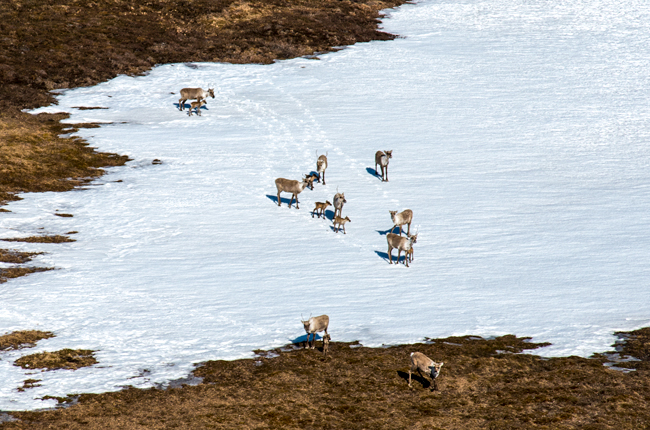Each year, the Porcupine caribou herd completes one of the greatest land migrations on earth to the Coastal Plain of the Arctic National Wildlife Refuge; the herds calving, post-calving and insect relief habitat.
The calving and post calving grounds are critical habitat for when the cows and calves are most vulnerable and sensitive to disturbance. The Coastal Plain of the Refuge provides higher quality forage with lower risk of predation.
With the herd’s population currently estimated at 218,000, between 60,000 and 72,000 calves are born each year. Science shows that the calves do better when they are born in the Coastal Plain of the Arctic Refuge.
Both Canada and the United States have international obligations with respect to the protection and conservation of the Porcupine caribou herd and the rights of Indigenous users.
In 1987, Canada and the United States signed a treaty aimed to ensure the conservation of the herd and to ensure that caribou remain available to Indigenous peoples for their cultures and subsistence. In Canada, Indigenous rights of the Gwich’in, Na-cho Nyak Dun, Vuntut Gwitchin, Tro’ondek Hwech’in, and Inuvialuit Peoples are legally protected in land claim agreements and the Canadian Constitution.

